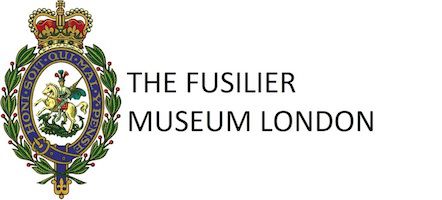During the week we were researching the 1st battalion, we researched their involvement during the First World War and we explored several soldiers’ lives throughout and after the war.
We produced a spoken report combining our individual aspects into one single report:
Men were enthusiastic to join up and relished the chance to ‘get at’ the Germans. The 1st – 4th Battalions were the regular soldiers who were called up as soon as war broke out. Then, after the regulars came the reservists, consisting of the 5th – 6th Battalions. The volunteer Battalions consisting of entire villages, which joined up entire villages at a time, these then formed ‘Pals Battalions’, but were also known for which job they performed in civilian life e.g. Public School Students and Stockbrokers. These men would travel to the trenches together, eat, fight and sleep alongside each other.
The 1st Battalion suffered extreme loss throughout the entire war. By the end of the first year of the war, they had replaced their Battalion twice over because of sustained casualties.
H.C O’Neil writes in ‘The Royal Fusiliers at War’ how the 1st Battalion suffered in one daylight patrol:
“A daylight patrol on the 27th resulted in 17 O.R [other ranks] being killed and 12 wounded”
This was just one example of many other incidents that will happen to the 1st Battalion over the course of the war.
The living standards for the soldiers during the Great War were very often appalling. The trenches that the soldiers had fought in were dug 6 foot deep and were 4 foot wide. In many situations the trenches were filled with water from the bad weather.
The soldiers spent long periods of time in water this caused their feet to mould and get infected by the bacteria that lived there. This is more commonly known as trench foot. For the 1st battalion, medication for this disease was not available as the cases were never reported. However they did receive a special kind of treatment.
Murray Victor Burrow Hill, a solider from the 1st battalion that has survived the war, describes his experience of the trenches and encounter with ‘trench feet’.
“We had a very murky time in the line at Hooge…”
Leaving for war with friends helped boost the soldiers’ morale, but it was easy to lose hope in the trenches. Most of the soldiers adapted this idea of ‘surviving the war with a smile’. They brought with them their sense of humour and celebration.
Sgt Weedon of the 1st Battalion wrote a narrative after he returned from war that included many anecdotes from his time there;
“It may have been Pancake Day, I can’t remember … but we got to a bet of 2/6 who could “toss” [the pancakes] … and three of us were to toss at once and the onlookers decide the result. We all tossed but Gallagher and I had forgotten the roof was very low, about 6 foot, and our pancakes splashed all over the roof and someone shouted “catch it we can’t lose it” and we two held our pans together … what we caught went in again, dirt and maybe lice too.”
In Hill’s memoir, he mentions the role of religion in the trenches;
“I must digress a bit to say what a curious affection the soldiers of those days had for religion. They had many compulsory church parades, and to get to know many hymns.”
Many of the soldiers also spent their time in the trenches writing. Hundreds of thousands of letters were sent home each week along with poems, postcards for Christmas and New Year and photographs. Unfortunately as the war went on, most of the letters being sent and delivered were censored for fear of interception and because it was thought that a letter containing bad news containing bad news could dampen morale.
Many of the poems sent home or written in the trenches were published but some weren’t;
More than 8 million British soldiers were involved in World War one from July 1914 until November 1918. Over 900 thousands were killed in action, dying of wounds, diseases or injury in addition to the missing being presumed dead.
The end of the war was declared on the 11th of November 1918. Finally the horrible bloody war finished after 4 years of fighting, after 4 years of suffering and after 4 years of dying.
Listen to the full recording:
